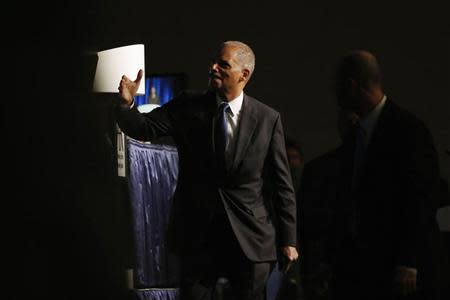U.S., Switzerland forge bank settlement deal amid tax probe

By Patrick Temple-West WASHINGTON (Reuters) - The U.S. Justice Department said on Thursday it had signed an agreement with the Swiss government to allow some Swiss banks to avoid or defer prosecution stemming from a long-running probe of tax dodging by Americans using Swiss bank accounts. The settlement program will apply to about 100 second-tier Swiss banks, provided they agree to disclose certain previous hidden assets of U.S. customers. It will be open only to banks not already under U.S. criminal investigation. The deal is a step forward in a three-year U.S. effort to pierce the shroud of Swiss bank secrecy, but some details of the program raise questions about its potential for rooting out U.S. tax evaders, tax lawyers and watchdog groups said on Thursday. Under the program, eligible banks would pay penalties and disclose account information about U.S. customers in order to avoid prosecution, the department said in a statement. "The program's requirement that Swiss banks provide detailed account information will improve our ability to bring tax dollars back to the U.S. Treasury from across the globe," Attorney General Eric Holder said in a statement. Fourteen Swiss banks already under investigation by U.S. prosecutors are excluded from the program, the Justice Department said. The program is not available to individuals. Some critics of the Justice Department's previous tax crackdown efforts welcomed the settlement program. "On the whole it's a pretty strong agreement," said Heather Lowe, director of government affairs at anti-graft watchdog Global Financial Integrity. Still, the settlement program has "gaps," specifically whether banks could settle without turning over U.S. client names, Lowe said. "That is definitely one open question here." STEEP PENALTIES Under the program's penalty provisions, a Swiss bank seeking a nonprosecution agreement must agree to a penalty equal to 20 percent of the total dollar amount of all hidden U.S. customer accounts held by the bank on August 1, 2008. That was roughly when the United States started cracking down on tax avoidance by Americans with secret Swiss accounts. The penalty amount increases to 30 percent and then to 50 percent, depending on how active a bank was in continuing to open secret accounts for Americans after the crackdown began. To determine whether or not to participate in the program, Swiss banks will need to weigh the cost of potential penalties versus the risk of a U.S. prosecution, tax lawyers said. "It's a choice between two evils," said Walter Boss, a tax lawyer with Poledna Boss Kurer AG in Zurich. If they don't cooperate with the U.S., the U.S. might indict them." The program also requires cooperating banks to tell prosecutors about Americans' assets that left Switzerland and were moved to other tax havens. Though the Justice Department declined to identify the Swiss banks it is investigating, a number are known to be facing U.S. probes. These include Credit Suisse , Julius Baer , the Swiss arm of Britain's HSBC , privately held Pictet, and state-backed regional banks Zuercher Kantonalbank and Basler Kantonalbank . Several of these banks have said they are preparing information on client withdrawals as demanded by U.S. investigators, after the Swiss government said it would allow them to circumvent secrecy and privacy laws to do so. "The U.S.'s goal ultimately is to get untaxed money into the tax system," said Jeffrey Neiman, a former federal prosecutor involved in other Swiss bank investigations who is now in private law practice in Fort Lauderdale, Florida. "Whether or not this is going to be a big step is still an open question." (Editing by Kevin Drawbaugh, Gary Hill, Matthew Lewis and Ken Wills)
